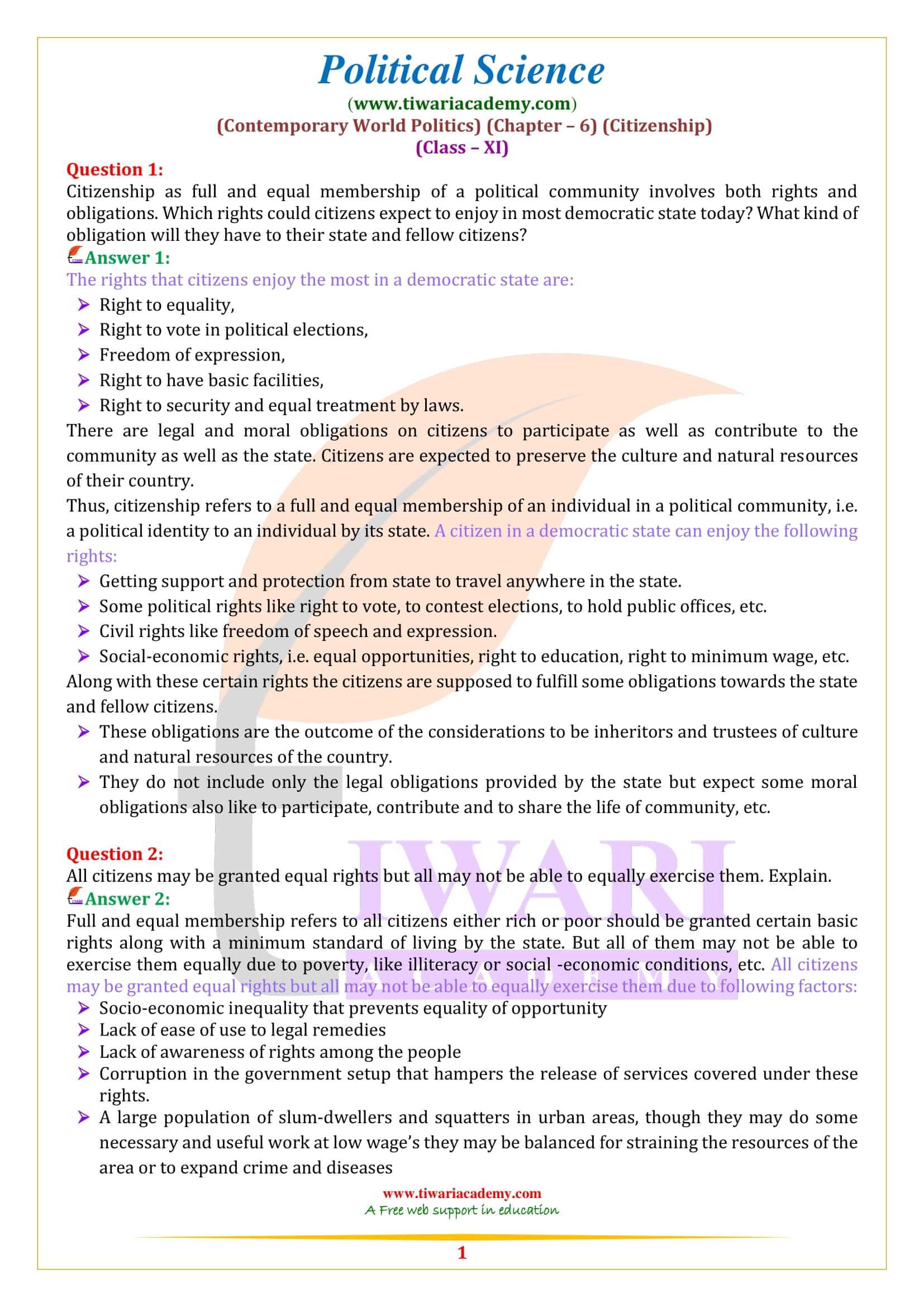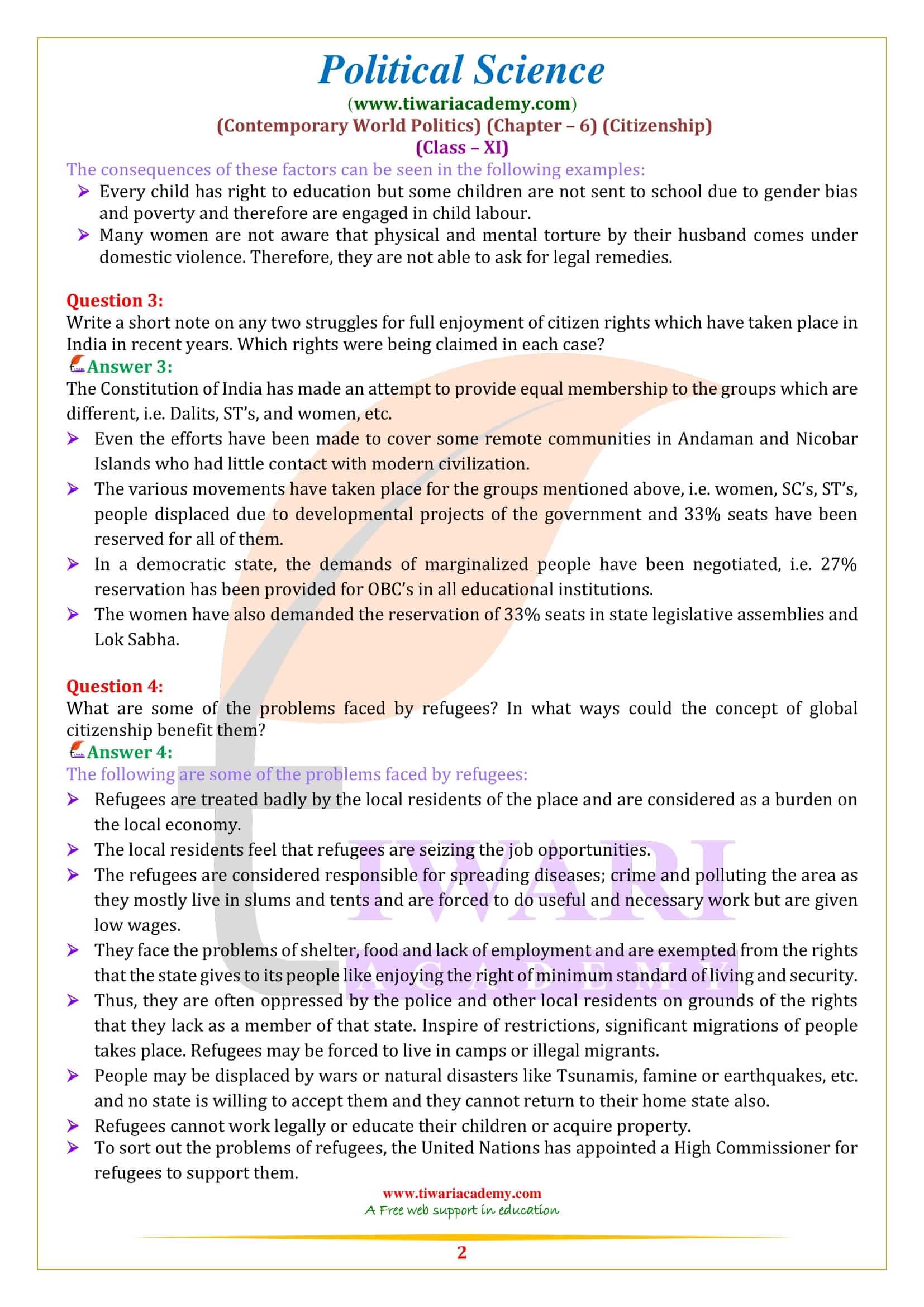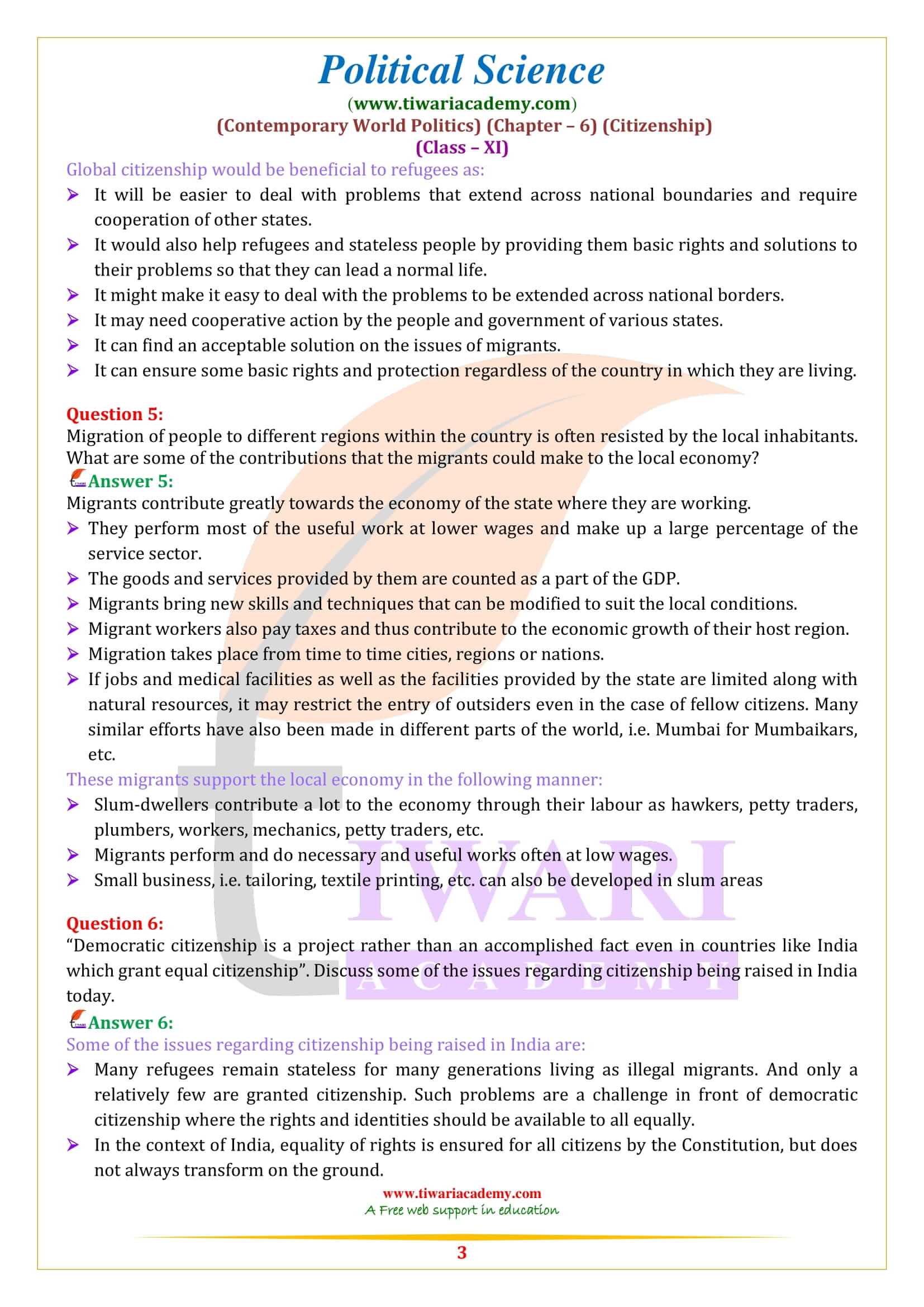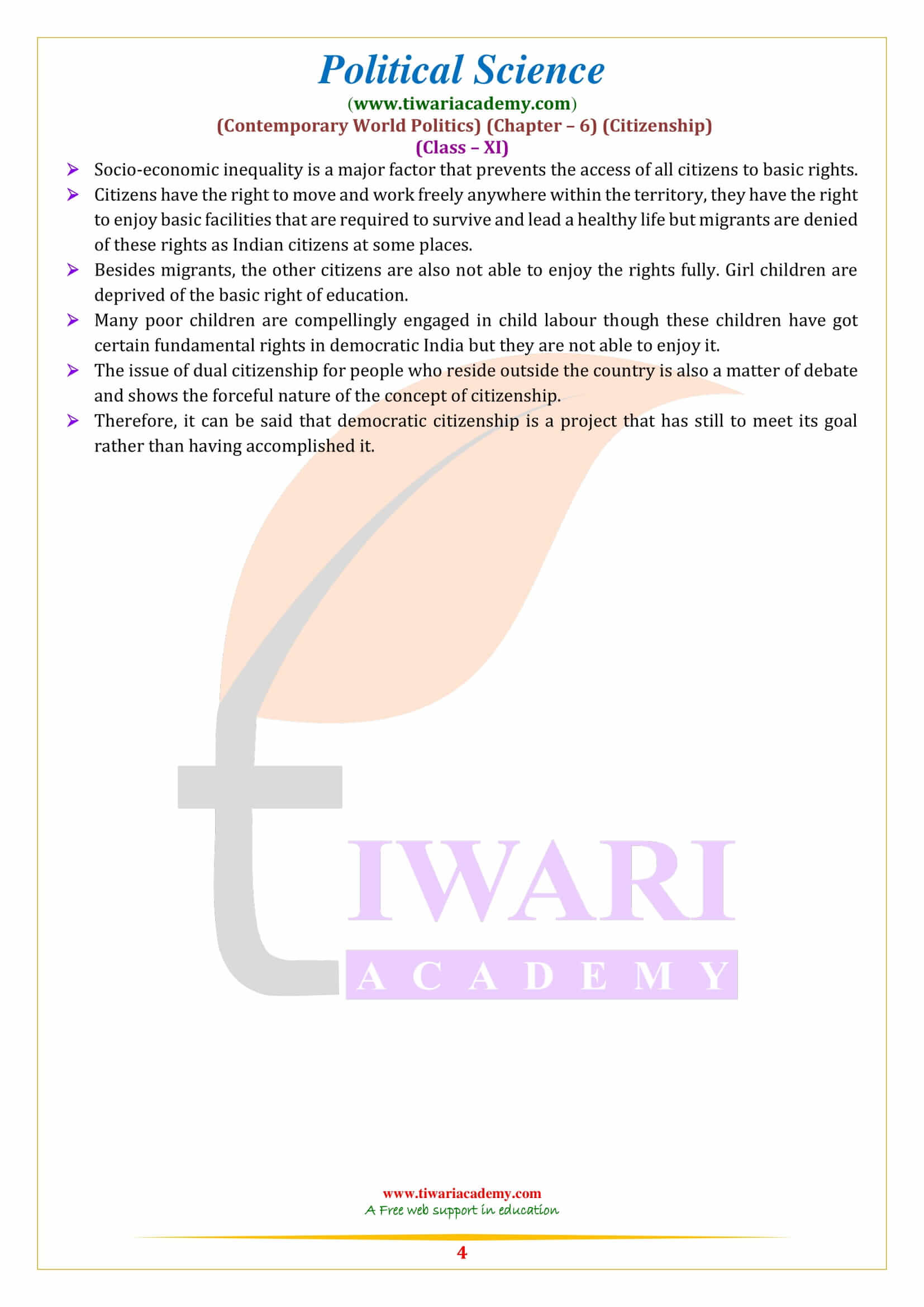NCERT Solutions for Class 11 Political Science Chapter 6 Citizenship in English and Hindi Medium updated for new academic session CBSE and State board 2025-26 free to use. All the question answers of class 11 Political Science Chapter 6 of Political Theory are given here in easy to learn format.
NCERT Solutions for Class 11 Political Science Chapter 6
All citizens may be granted equal rights but all may not be able to equally exercise them. Explain.
Full and equal membership refers to all citizens either rich or poor should be granted certain basic rights along with a minimum standard of living by the state. But all of them may not be able to exercise them equally due to poverty, like illiteracy or social -economic conditions, etc. All citizens may be granted equal rights but all may not be able to equally exercise them due to following factors:
- Socio-economic inequality that prevents equality of opportunity
- Lack of ease of use to legal remedies
- Lack of awareness of rights among the people
- Corruption in the government setup that hampers the release of services covered under these rights.
- A large population of slum-dwellers and squatters in urban areas, though they may do some necessary and useful work at low wage’s they may be balanced for straining the resources of the area or to expand crime and diseases
The consequences of these factors can be seen in the following examples:
- Every child has right to education but some children are not sent to school due to gender bias and poverty and therefore are engaged in child labour.
- Many women are not aware that physical and mental torture by their husband comes under domestic violence. Therefore, they are not able to ask for legal remedies.
Write a short note on any two struggles for full enjoyment of citizen rights which have taken place in India in recent years. Which rights were being claimed in each case?
The Constitution of India has made an attempt to provide equal membership to the groups which are different, i.e. Dalits, ST’s, and women, etc.
- Even the efforts have been made to cover some remote communities in Andaman and Nicobar Islands who had little contact with modern civilization.
- The various movements have taken place for the groups mentioned above, i.e. women, SC’s, ST’s, people displaced due to developmental projects of the government and 33% seats have been reserved for all of them.
- In a democratic state, the demands of marginalized people have been negotiated, i.e. 27% reservation has been provided for OBC’s in all educational institutions.
- The women have also demanded the reservation of 33% seats in state legislative assemblies and Lok Sabha.
What are some of the problems faced by refugees? In what ways could the concept of global citizenship benefit them?
The following are some of the problems faced by refugees:
- Refugees are treated badly by the local residents of the place and are considered as a burden on the local economy.
- The local residents feel that refugees are seizing the job opportunities.
- The refugees are considered responsible for spreading diseases; crime and polluting the area as they mostly live in slums and tents and are forced to do useful and necessary work but are given low wages.
- They face the problems of shelter, food and lack of employment and are exempted from the rights that the state gives to its people like enjoying the right of minimum standard of living and security.
- Thus, they are often oppressed by the police and other local residents on grounds of the rights that they lack as a member of that state. Inspire of restrictions, significant migrations of people takes place. Refugees may be forced to live in camps or illegal migrants.
- People may be displaced by wars or natural disasters like Tsunamis, famine or earthquakes, etc. and no state is willing to accept them and they cannot return to their home state also.
- Refugees cannot work legally or educate their children or acquire property.
- To sort out the problems of refugees, the United Nations has appointed a High Commissioner for refugees to support them.
Global citizenship would be beneficial to refugees as:
- It will be easier to deal with problems that extend across national boundaries and require cooperation of other states.
- It would also help refugees and stateless people by providing them basic rights and solutions to their problems so that they can lead a normal life.
- It might make it easy to deal with the problems to be extended across national borders.
- It may need cooperative action by the people and government of various states.
- It can find an acceptable solution on the issues of migrants.
- It can ensure some basic rights and protection regardless of the country in which they are living.
Migration of people to different regions within the country is often resisted by the local inhabitants. What are some of the contributions that the migrants could make to the local economy?
Migrants contribute greatly towards the economy of the state where they are working.
- They perform most of the useful work at lower wages and make up a large percentage of the service sector.
- The goods and services provided by them are counted as a part of the GDP.
- Migrants bring new skills and techniques that can be modified to suit the local conditions.
- Migrant workers also pay taxes and thus contribute to the economic growth of their host region.
- Migration takes place from time to time cities, regions or nations.
- If jobs and medical facilities as well as the facilities provided by the state are limited along with natural resources, it may restrict the entry of outsiders even in the case of fellow citizens. Many similar efforts have also been made in different parts of the world, i.e. Mumbai for Mumbaikars, etc.
These migrants support the local economy in the following manner:
- Slum-dwellers contribute a lot to the economy through their labour as hawkers, petty traders, plumbers, workers, mechanics, petty traders, etc.
- Migrants perform and do necessary and useful works often at low wages.
- Small business, i.e. tailoring, textile printing, etc. can also be developed in slum areas





